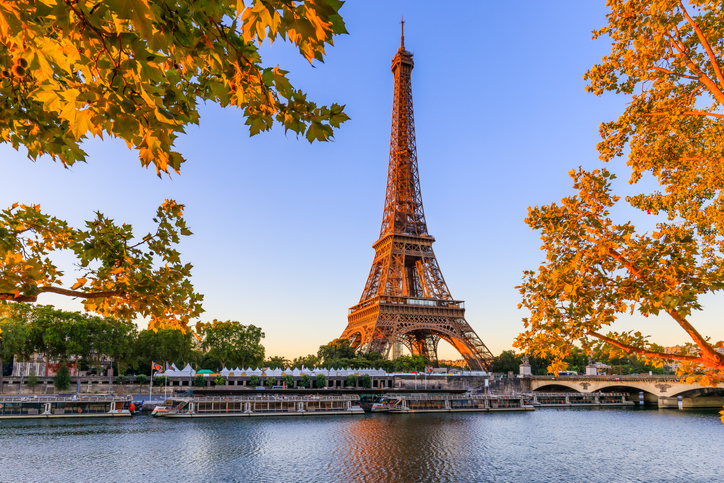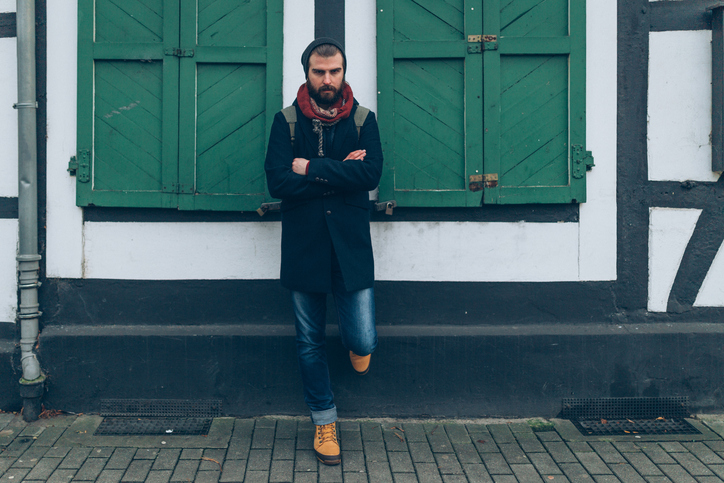Atheism is on the rise, with approximately 30 percent of people in the United States claiming that they don’t have any religious affiliations. It’s not just the U.S. People from all over the world are sharing these sentiments, with many countries displaying large numbers of people who choose the path of non-religion. Here are 15 of the most atheist countries.
1. China

In China, approximately 67 percent of people label themselves as non-religious, which makes it the world’s least religious country. In addition, only nine percent of people said they follow a religion. A change of education guidelines dating back a few years that doesn’t enforce religious structures and teachings in school is the reason for the increase.
2. United Kingdom

The UK is considered one of the least religious countries, with England and Wales having the fewest religious inhabitants, according to a 2021 Census. The number of people who chose the “No religion” option in the census increased from 25 to 37 percent between the years of 2011 and 2021. This has resulted in Christians being a minority in the country’s census results for the first time in history! A possible reason for this change is that religion clashes with many people’s opinions on important social issues such as abortion and gender equality.
3. Australia

In the 2022 Census results of Australia, the number of people stating that they don’t have a religion was 38.9 percent, which is an increase of 8.8 percent since 2016. This is a huge group of people, considering that 43.9 percent of the population define themselves as Christian. Mainstream Christianity is decreasing in the country, largely because of education and social issues such as sexual ethics and the role of women in society.
4. Norway

Norway’s constitution used to mention a specific religion of the state, but that is no longer the case. Now, it specifies that the country’s values are focused on religious and humanist roots, which is much more vague. Currently, approximately 39 percent of people in the country define themselves as atheists, compared to 37 percent of those who follow a religion. Although only about two percent of Norwegians attend church regularly, many people still take religious holidays as they’re an opportunity to take time off work!
5. Japan

While some atheists might feel uncertain about the existence of a higher power, between 30 and 39 percent of people living in Japan are “convinced atheists.” However, approximately 80 percent of people state that they have nonreligious feelings. Interestingly, while many people in Japan don’t see religion as being important in their lives, they still visit special shrines and other sacred areas in the country, displaying the trend toward spirituality over organized religion.
6. Sweden

Before 1996, children born in Sweden were automatically enrolled in the Swedish Church, which has millions of members. However, only five percent of people in the country regularly attend church. There’s also been an increase in people moving away from religion altogether. In 2014, a study found that approximately eight out of 10 people in Sweden call themselves “convinced atheists” or “non-religious.” There has been a shift from the cultural role the church has played in the country, with many people viewing religion as unimportant.
7. Belgium

Approximately 40 percent of people living in Belgium consider themselves non-believers, agnostics, or atheists. With a strong emphasis on freedom of speech and thought, Belgium is one of the few countries in the world to prioritize life philosophies and worldviews over organized religion. There’s also a clear separation of the state from the church. This is what makes it one of the best places to live if you’re seeking a non-religious life path.
8. Iceland

Iceland is another country where you’ll find many atheists. In a recent poll, less than 50 percent of people in the country labeled themselves as religious. In addition, more than 40 percent of young Icelanders choose atheism instead of religion. Surprisingly, the poll could not find any young people in the country who believe in the Biblical story of creation, with 93 percent of people younger than 25 thinking the world was created by the Big Bang.
9. France

Although France has traditionally been a Catholic country, religious views and beliefs are changing. Significant cultural shifts over the past century, such as regarding globalization and the exposure to diverse cultures, have been experienced in the country. Statistics from 2020 found that while 35 percent of people are believers, 30 percent of people consider themselves non-believers or atheists. In addition, 14 percent of people are agnostic, while 13 percent said they’re indifferent.
10. Germany

In Germany, people’s ideas are moving away from religious beliefs. A recent poll found that only 33 percent of people think religion is important. The rest claim it doesn’t play a significant role in their lives. In addition, roughly only 12 percent of people still believe that religion can improve the state of the world. Younger people in the country tend to display more confusion about their beliefs, with 15 percent of people between the ages of 18 and 29 stating they don’t know if religion is important to them.
11. Czech Republic
 provided by Shutterstock
provided by Shutterstock
Although most adults in Eastern and Central Europe believe in God, most people in the Czech Republic are non-believers. Approximately 72 percent of people in the country don’t belong to any specific religious group, while 46 percent consider their religion “nothing in particular.” In addition, about 25 percent of people define themselves as atheists. Researchers think this is because the country has a less conservative stance on social views and people take part in fewer religious activities than those in neighboring countries.
12. South Korea

In South Korea, there’s no major religious group! Research states that while 23 percent of people describe themselves as Buddhists and 29 percent are Christian, 46 percent claim to have no religious affiliations. (The other two percent are listed as “other.”) The country’s previous president, Park Geun-hye, was also thought to be an atheist. Since 2012, South Korea has lowered its government restrictions on religious beliefs, which has cultivated a more tolerant approach in the country.
13. Denmark

Although Christianity has long been a part of Denmark’s culture, less than five percent of people in the country consider themselves “very religious.” Statistics from 2017 show that approximately 46 percent of respondents claim that they don’t believe in God, while 15 percent do. This makes Denmark one of the best places to live in the world if you’re an atheist, as many people in the country don’t see religion as being important in their lives.
14. The Netherlands

Since the 1960s, religious structures in Denmark have started to break down, with society becoming more secular. Over the years, people have been moving away from their Christian beliefs. Research has found that approximately 14-28 percent of people in the country believe God cares about people, believe in the Bible, and think there’s life after death. The number of atheists has increased from 16 percent in 1990 to 29 percent in 2018, while 37 percent of people call themselves “non-religious.”
15. Estonia

Although you’ll see various churches and religious sites in Estonia, most people define themselves as atheist. This makes it one of the European countries with the least religious beliefs. Most people don’t practice their religion or make it an important part of their lives. Since there’s been a big shift from organized religion, a 2005 poll found that while 16 percent of people believe in God, a whopping 54 percent believe in some sort of spirit or life force.
Enjoy this piece? Give it a like and follow PsychLove on MSN for more!





